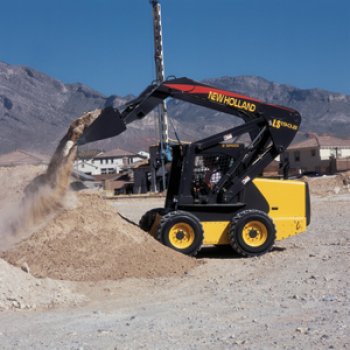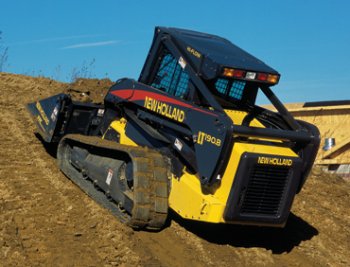|
Kobelco CNH Australia (KCNHA) has
approved the use of up to 20 pct biodiesel blends in its
industry-leading Case and New Holland construction
equipment.
Biodiesels are
produced from renewable energy sources such as oilseeds
including soybeans and canola, and can also be produced
using ethanol.
“In response to customer demand for equipment that runs on
cost effective, environmentally friendly fuel, all engines
manufactured by our plant in North America are approved for
the use of B5 blends, which is a mix of 5% biodiesel and 95%
petroleum-based diesel, while the use of 20% blends is
possible on all engines other than common rail,” KCNHA
marketing manager Wayne Munce said.
The long-term effects of biodiesel in higher blend ratios
are yet to be confirmed, however KCNHA is also working with
its partners including the Fiat Group and industry groups to
further the use biodiesels and higher blends. “In 2002, New
Holland North America was the first equipment company to
join an offspring of the National Biodiesel Alliance, an
information-sharing group committed to exploring biodiesel
issues.
|
 |
|
The long-term effects of biodiesel in higher blend
ratios are yet to be confirmed, however KCNHA is
also working with its partners including the Fiat
Group and industry groups to further the use
biodiesels and higher blends. |
|
|
 |
|
CNH
Australia has approved the use of up to 20%
biodiesel blends,
produced from renewable energy sources such as
oilseeds including soybeans and canola, in Case and New Holland construction equipment. |
|
|
"Along with our partners such as the Fiat Group, we’re also
looking at the use of higher-level biodiesels and
have initiated field tests to evaluate the performance of
engines fuelled by 100% biodiesel."
Biofuels reduce Australia’s dependence on imported oil, with
the environmental benefit of lowering emissions. Best of
all, biofuels are ideal for a wide range of equipment from
tractors with engines running at constant speeds to the
variable speed engines of construction equipment such as
wheel loaders. However the use of higher blends is not
without its challenges. “It’s advisable to talk to your
local dealer first as there are certain handling and
maintenance requirements involved in moving towards 20%
blends,” Wayne said.
Cost is one consideration, as blends higher than 5% are more
expensive. Biofuels also attract water vapours from the air,
so fuel tanks should be kept as full as possible to limit
the amount of condensation. When switching to a biodiesel
blend, fuel filters need to be changed more regularly while
the system adjusts to the new fuel source as biodiesels will
remove rust and particles from the inside of storage and
fuel tanks.
|
|
|
|
![]()
![]()